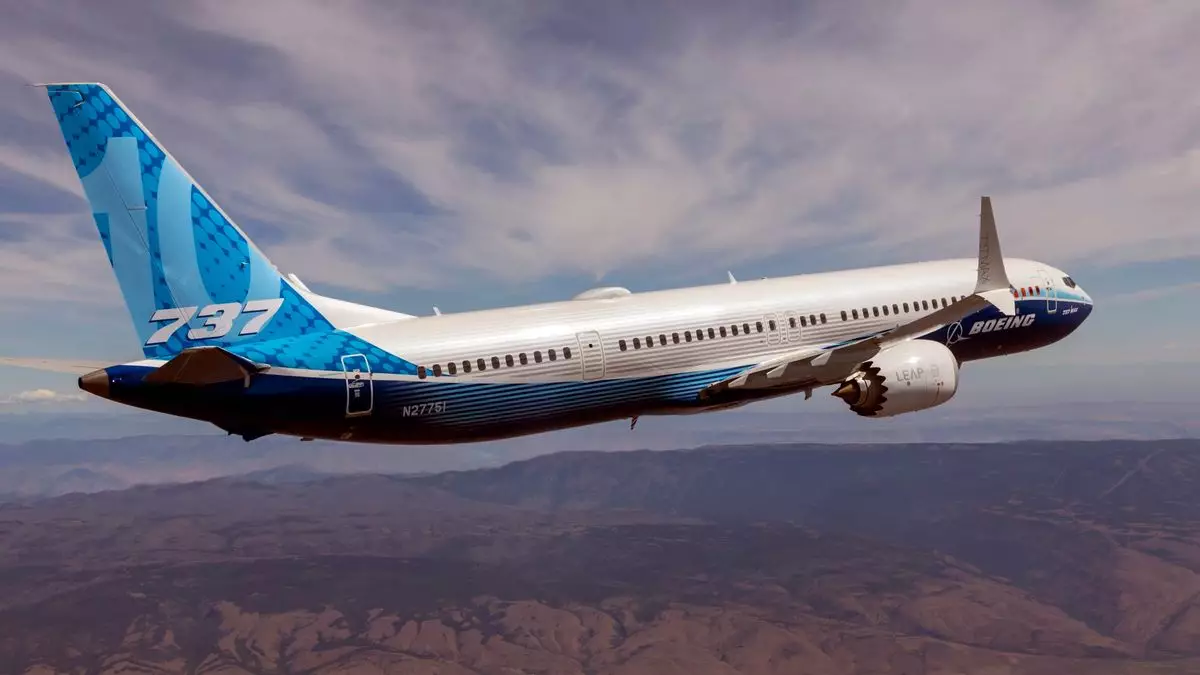The recent settlement between Boeing and the U.S. Justice Department, outlined in court documents dated May 23, represents an unprecedented moment in the landscape of corporate accountability. After two devastating crashes of the Boeing 737 Max—resulting in the tragic deaths of 346 individuals—the decision to permit Boeing to evade criminal prosecution is alarming. Boeing’s potential liability and public scrutiny had initially raised hopes for justice for the victims’ families. Instead, the agreement, which allows the aerospace giant to make a payment of over $1.1 billion, raises troubling questions about the effectiveness of regulatory enforcement and the moral fabric of corporate conduct.
Under the terms of this settlement, Boeing will contribute substantial funds, including $445 million earmarked for the families of the crash victims. Nevertheless, this monetary compensation comes at the price of a fraud charge being dismissed—essentially a pathway for Boeing to sidestep the ramifications of their alleged misconduct in misleading the Federal Aviation Administration (FAA) during the certification process of the 737 Max. The facts surrounding the aircraft’s design flaws and the controversial Maneuvering Characteristics Augmentation System (MCAS) raise serious concerns about the ethical implications of this agreement.
Critique of Corporate Responsibility
Corporations as large as Boeing wield enormous power and influence; they have a moral obligation to prioritize safety over profit. Paul Cassell, an attorney for several crash victims’ families, aptly characterizes the deal as “obviously wrong for the deadliest corporate crime in U.S. history.” This sentiment reflects the frustration felt by many families who are not just seeking financial remuneration, but also accountability that extends beyond fiscal settlements. They desire criminal prosecution for those who were in positions to make safety decisions that arguably contributed to the tragic fate of their loved ones.
The case has raised further scrutiny regarding how justice is served—or neglected—within corporate contexts. The Justice Department has framed this decision as “the most just outcome” based on legal interpretations and policy. However, is it truly just to allow a corporation to avert criminal charges simply by paying a sum of money? This pretense at justice not only detracts from the suffering endured by the families but also sends a haunting message to corporations across the nation: that financial bullying can pave the way for immunity from serious legal consequences.
The Implications for Future Aviation Safety
Javier de Luis’s remark that the Justice Department is retreating from offering justice resonates profoundly within this context. The message that emerges from this settlement is one of complacency regarding corporate malfeasance. If entities at the top can neglect safety concerns and, when faced with oversight, can simply alleviate their responsibilities through monetary payment, the safety of future air travelers is undeniably compromised.
The crashes highlighted glaring shortcomings in Boeing’s operational ethos and regulatory scrutiny. The MCAS, a system designed to prevent stalls, instead became the primary catalyst in both catastrophic incidents. Deciding against a rigorous public trial when the evidence appears compelling raises crucial questions about how we define and enforce the safety of our aviation systems. It reflects a potential regulatory failure that prioritizes the economic interests of corporations over the lives of individuals.
The Dissenting Voices
Amidst this backdrop of complex emotions from victim families, Boeing does not appear keen to engage publicly with the concerns raised. The company’s silence raises eyebrows and suggests that they may be content with a path that avoids accountability. The dissenting voices among the bereaved families amplify the need for a system of justice that extends beyond financial negotiation; they advocate for transparency, accountability, and a rigorous investigation into the decisions leading up to the crashes.
This dissonance between public expectation and corporate response invites further critique of how safety regulations are enforced. With mixed perspectives from the victims’ families about the proposed deal, it’s clear that no sum will bring closure to those grieving the loss of their loved ones. Instead, it raises pressing concerns about the long-term impacts on safety protocols within the aviation industry. Families seek not just compensation but a commitment to ensuring such tragedies do not repeat.
A Call for a New Standard
In light of this situation, we must challenge the status quo and advocate for a redefined approach to corporate accountability. Justice in cases of corporate malfeasance should not be negotiable; it should not be a mere transaction. The need for a more robust regulatory framework is imperative, ensuring that safety is not just a box to tick but a fundamental aspect of corporate culture. Companies like Boeing must be held to the highest standards of transparency and accountability, especially when their decisions hold life-or-death consequences.
As we reflect on this case, the unsettling notion of a corporate giant escaping criminal liability highlights an urgent necessity for change. The public deserves assurance that their safety is prioritized over corporate interests, and the families affected by this tragedy deserve the justice that has eluded them thus far.


Leave a Reply